Animals
-
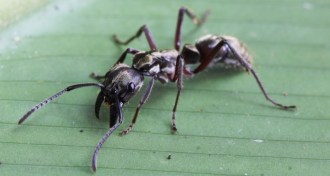 Animals
AnimalsSwimming evolved several times in treetop ants
Certain ants living in tropical forest canopies turn out to be fine swimmers.
By Susan Milius -

-
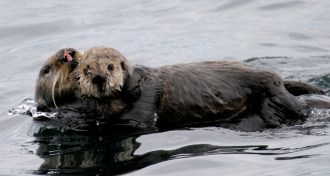 Animals
AnimalsIt’s hard being a sea otter mom
The energy requirements of lactation may explain why some female sea otters abandon their young.
-
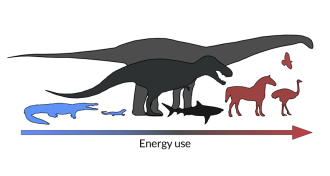 Life
LifeDinos straddled line between cold- and warm-blooded
Tyrannosaurus rex and other dinosaurs straddled line between cold- and warm-blood, a new analysis finds.
By Meghan Rosen -
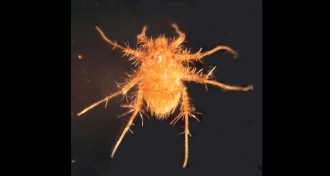 Life
LifeCalifornia mite becomes fastest land animal
Despite being the size of a sesame seed, the Paratarsotomus macropalpis mite can outpace Usain Bolt and even a cheetah in terms of body lengths per second.
-
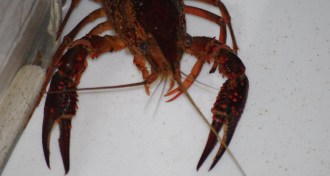 Neuroscience
NeuroscienceCrayfish get anxious, too
After receiving a shock, crayfish act anxious, avoiding brightly lit areas.
-
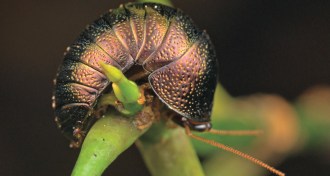 Animals
AnimalsLook beyond pest species to find beauty in cockroaches
A few pest species give the group a bad name, but exotic roaches include an amazing diversity of colors and lifestyles.
By Susan Milius -
 Animals
AnimalsSee your lawn through a bird’s eyes with YardMap
A new web tool lets you map your outdoor spaces and wildlife habitat, helping scientists understand how birds use urban and suburban spaces.
-
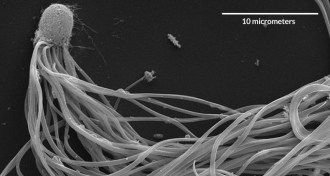 Animals
AnimalsAnt sperm swim as a team
The desert ant has sperm that swim in bundles for extra speed, perhaps increasing their likelihood of fertilizing an egg.
-
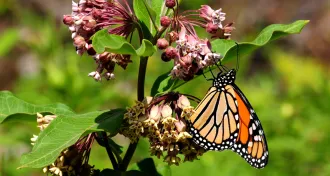 Animals
AnimalsWinter road salting reshapes next summer’s butterflies
Winter road salt treatments boost sodium in roadside plants and alter development for monarch butterflies.
By Susan Milius -
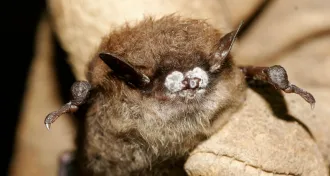 Animals
AnimalsDeadly bat disease gets easier to diagnose
White-nose syndrome in bats can be spotted with UV light, scientists have found.
-
 Paleontology
PaleontologyPreserved pterosaur eggs hint at reptile’s social life
The first 3-D pterosaur eggs, which were found in China, suggest that the flying reptiles laid eggs together.
By Meghan Rosen